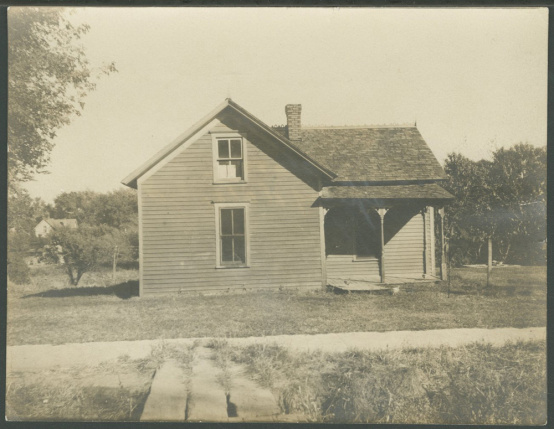
There is a prescribed significance for readers in the “prodigal son” of any narrative—we are meant to pay close attention to the moralizing trajectory of the flaw-filled misfit who betrays community in service to secular pursuits, pursuits which ultimately exhaust their resources and compel the lovable miscreant back into the home and into maturity. They are forgiven totally, even irrationally (but that is the point), and we as the audience are encouraged to appreciate the valuable lessons the parable passes off, lessons about the sanctity of forgiveness and the profundity of humiliation. It is a tired and derailing edification, well-intended in its inception but now quite often appropriated by characters we might call fashionably dysfunctional—amoral comedy playthings written with a heavy emphasis on providing relatable feel-good content over grounded ethical guidance. But, more than its contemporary adaptations, the parable’s most heinous crime can be traced all the way back to its original telling: the symbolic murder of the “other son”—the one who stays, the loyal family man who obeys his father’s wishes from the start, whose existence in the narrative often feels necessary only as contrast for the miscreant’s dramatic arc. Gilead (2004) dives into this “other son” head-first, quite literally, with a narrative devoted to exploring the inner thoughts of Reverend Ames, an Iowa minister who has stayed behind in the small town of Gilead longer than anybody could have asked him to—his own father included.
Gilead is all about fathers, sons, and the blow death deals in distance between them. Ames is an old man, a dying preacher with a failing heart who wishes to leave behind a testament of his history for his boy, who is still too young to truly know his father or comprehend his illness. This is how the novel presents itself, and yet Ames’s intention is often hindered by self-consciousness, philosophical meandering, and a burning preoccupation with the growing drama of the Boughton family, close friends of Ames and harborers of a very real prodigal son story which frequently meshes with the principal tale. When Ames does stay on task, he usually writes about his father, or his father’s father, expanding on his family and their past lives in Iowa, back when Gilead held even more firmly to its trailblazing glory days as an abolitionist sanctum (yet even in those stories these traits already belong primarily to memory; they are former, harsher times recounting former, harsher times). It is not a surprise, then, that this novel takes place in 1956, almost fifty years before it was written. For us, even Ames himself belongs to a past, a place and time with concerns for the future mollified or mourned simply by our present living. Even Ames’s son would now just be another old man in a story about many, many old men.
There are objects we can recount and people we can regard, but in Gilead, these things often and puzzlingly trade places. Ames remembers so fondly the taste of ash on a biscuit, consecrating the memory by calling it the Bread of Affliction, yet characters he includes are left fundamentally untold, as with the widening rift held between Ames’s father and grandfather, hinted at but never totally understood. History gets complicated by mystery in this way, and there are poignant themes of generational disconnection, untimely loss, and spiritual obfuscation the novel produces slowly and quietly. It is a story which aches with unanswerable questions—confronting death, imagining heaven, communing with God, or really not communing with God, and considering the painful reality that a body does decay, or that a child can grow up fatherless. Ames’s best forms of perseverance come from his observations of life in its simplicity, which he uses as a means of reclaiming, day after day, joy and gratitude. This is where Robinson’s writing especially shines, bringing to light all those small details of daily experience and transforming them into beautiful explosions of spiritual profundity. Ames tells us:
It is an amazing thing to watch people laugh, the way it sort of takes them over. Sometimes they really do struggle with it…so I wonder what it is and where it comes from, and I wonder what it expends out of your system, so that you have to do it till you’re done, like crying in a way, I suppose, except that laughter is much more easily spent.
His voice is calm and direct, guiding us carefully through a thought until it might be exhausted pleasingly. Robinson also grants him an acute sense of psychology, periodically offering to the most existentially troubled of readers a sense of kinship and catharsis:
Every single one of us is a little civilization built on the ruins of any number of preceding civilizations, but with our own variant notions of what is beautiful and what is acceptable – which, I hasten to add, we generally do not satisfy and by which we struggle to live. We take fortuitous resemblances among us to be actual likeness, because those around us have also fallen heir to the same customs, trade in the same coin, acknowledge, more or less, the same notions of decency and sanity. But all that really just allows us to coexist with the inviolable, intraversable, and utterly vast spaces between us.
Gilead is all about vast spaces. They are full of missed connections and deep contemplation, written about by Ames with a modest poeticism, who is deeply convinced of earthly beauty in spite of all our suffering. His urge to find such relief in things, however, rather than lost relationships—those past and those forthcoming—speaks to his own quietly hushed agonies.
Much of the conflict in Gilead comes from its grappling with faith and loyalty as they are often applied to history and tradition. Robinson draws from the traditional prodigal son narrative while still subverting many of its classic elements. Instances of both sons and fathers leaving their homes without ever returning are found throughout the novel, all of these men ultimately preferring the larger world to an unremarkable and stagnant Iowan town. Even Ames’ grandfather prefers to amble back to Kansas to die (a place where he partook in guerrilla warfare with John Brown, directly supporting the abolitionist movement), rather than stay in what he considers to be a politically-sterilized Gilead with a son he finds himself at odds with. History repeats itself many times in this book, yet each time is shaded and camouflaged as distinct, undeniably proving Robinson’s talent for style and storytelling. We’re fooled into following Ames’s account of things more faithfully than we might have done had we been given the wider story all at once. When his loyalty to the town is hotly vindicated with sanctimony and a trace of meanness, we begin to see what Robinson has been hinting all along: indeed, the “other son” was never better off. The future is beyond us, and our clinging to history for the sake of history may ultimately leave us feeling, as Ames bitterly admits, “homesick for a place I’ve never left.”
Gilead is quiet, powerful, and endlessly gainful. Robinson never fails to inspire in her readers a sense of the profound, generously expanding our awareness of self and of community, diminishing that “vast space between us” ever so lightly.
Share this:




